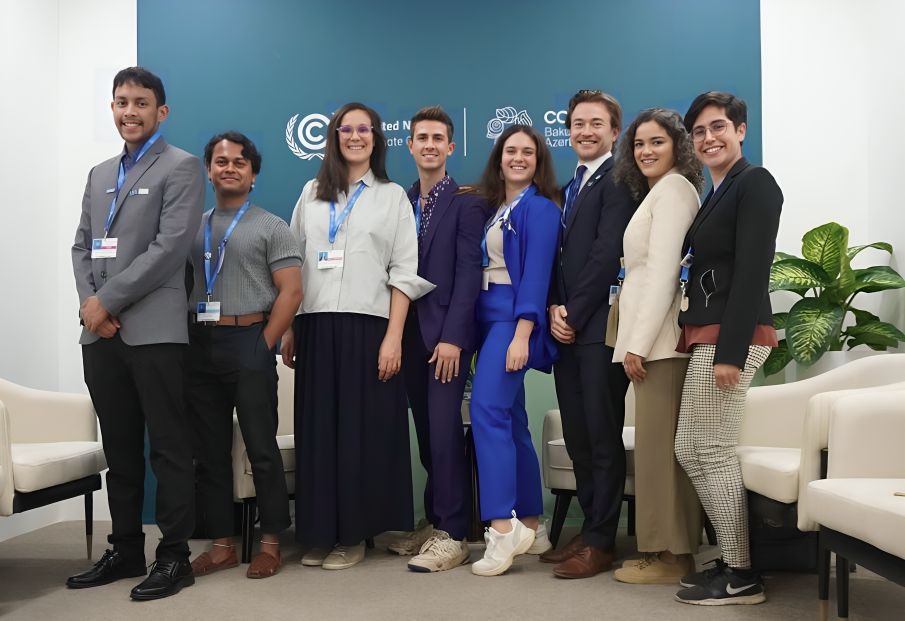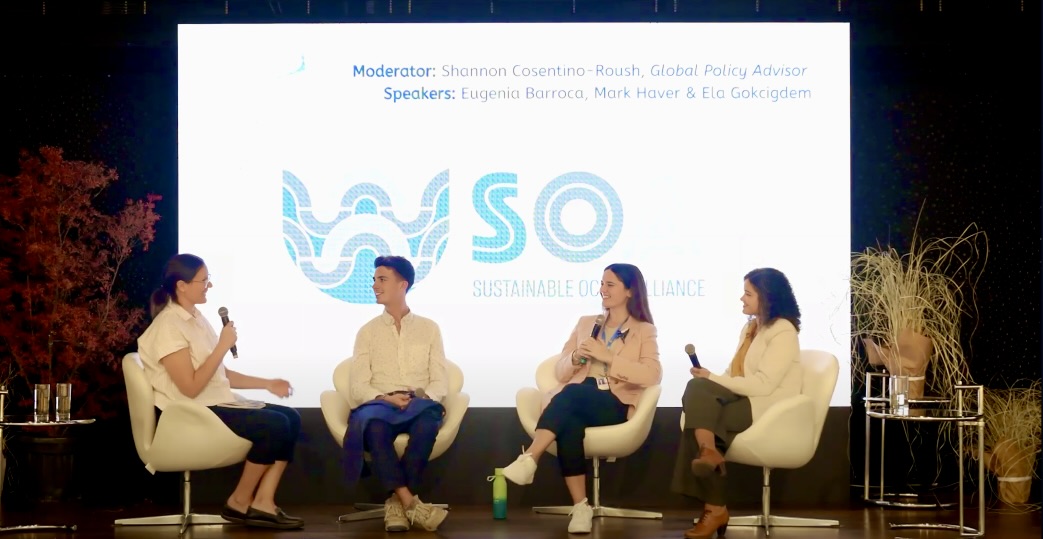What do you study and what brought you to the Geneva Graduate Institute?
I am in the Masters in International and Development Studies (MINT) Programme focusing on the Environment and Sustainability Track. I came to the Institute because I wanted to further my knowledge on the role of International Organisations on Ocean Governance. Although the Institute does not specifically focus on Ocean Governance, the Institute provides the required interdisciplinary perspectives that are required in the field. Ranging from law, economics to development, I knew the Institute was the right place for me to obtain a holistic perspective of humanity's relationship with the ocean.
You are an advocate for ocean-based climate solutions — what inspired your interest in the field? Can you tell us about some of your experiences?
My love for the ocean stemmed from my time growing up in my family’s hometown in Avşa, Turkiye. Avşa is a small island in the Marmara Sea, and in 2021, the Marmara Sea experienced the most catastrophic algal bloom in Turkish history. The algal substance, also known as sea mucilage, has caused irreparable damage to the marine ecosystem that millions of people not only rely on, but love. I used my studies in Boston to develop a clean-technology startup that converts the sea mucilage into nutrient rich char. This technology grew into a startup called Bloom, which won first place at the Monaco Ocean Protection Challenge in 2023 and lead to the development of three functional prototypes. My work on Bloom led me to work with the Scientific and Technological Research Council of Türkiye, providing the Marmara Municipalities Union with point-source pollution monitoring solutions to predict mucilage blooms months before they occur. Bloom has led me to representing the Marmara Sea on an international level, most recently at COP29.
What was it like attending COP29 in Azerbaijan?
I have attended the past three COP Conferences, and COP29 in Baku was particularly draining. My focus this year was to research ways to properly integrate the ocean into the United Nations Framework Convention on Climate Change (UNFCCC) framework. The ocean is our biggest ally in combating climate change, however parties seem to only view it as a “carbon sink” rather than a living breathing ecosystem. My goal this year was to conduct research on the integration of Oceans into a country's Nationally Determined Contributions (NDC’s) and see if it serves as a signal for public and private investments. This research will continue on to the SB62 Ocean & Climate Dialogue and COP30 in Belem, Brazil. There is a tireless group of youth who are advocating for proper ocean integration into UNFCCC processes, and despite how mentally straining it can be, I am honored to be one of the voices of the ocean on an international stage.
How do you find your studies at the Institute complement your work?
A good example of how my studies at the Institute complimented my work was during Article 6 negotiations, which led to the development of the first UN-backed Carbon Market. As I was following the negotiations for Turkiye, I was simultaneously writing and obtaining real-time content for my “Research Seminar on Carbon Pricing” essay, a class taught by Professor Alice Pirlot.




